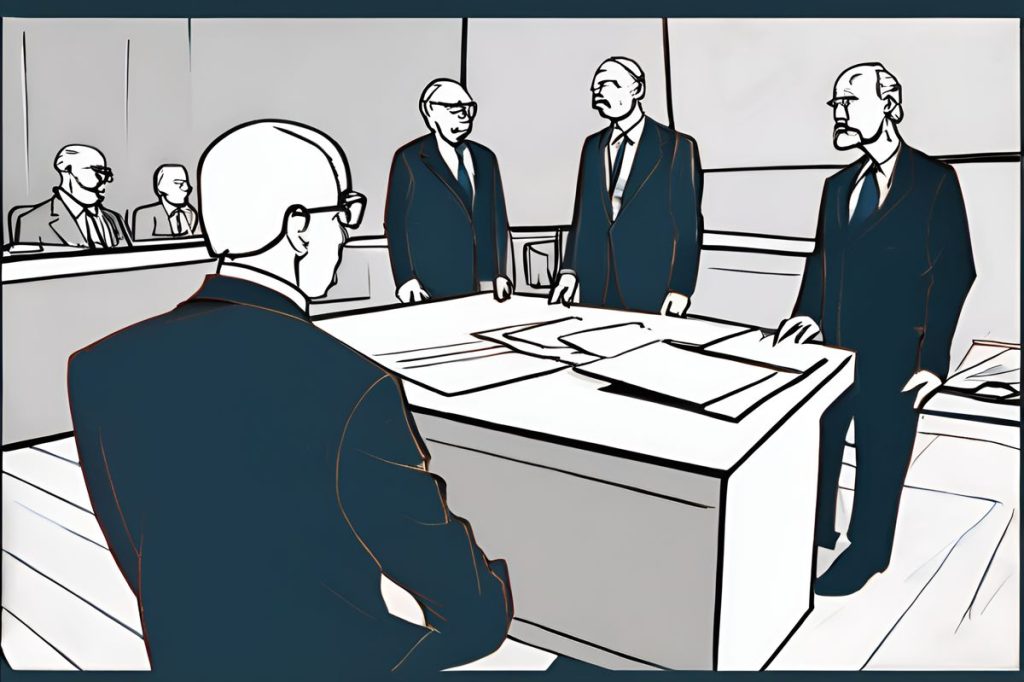The government is facing challenges with the LNG project, such as an EPPO investigation into alleged fraud and EU demands to return €69 million in funding. Despite these setbacks, negotiations are ongoing to secure the project’s progress and address corruption claims.
What challenges is the government facing with the LNG project?
The government is addressing various challenges with the LNG project, including an EPPO investigation into alleged procurement fraud and EU demands to return €69 million in funding. They’re negotiating a grace period for defense, considering alternative ship acquisition, and ensuring the project’s progress amidst claims of corruption and funding issues.
Government’s Efforts to Mitigate LNG Project Controversy
The recent developments in the LNG project have placed the spotlight firmly on the government’s handling of the situation. Energy Minister George Papanastasiou conveyed on national radio that strenuous efforts have been made to contain the negative impact of the project’s issues. The government has been under fire lately, especially after the European public prosecutor office (EPPO) revealed an ongoing investigation. This probe focuses on alleged procurement fraud, possible misappropriation of EU funds, and suspected corruption. Amidst these turbulent times, the state is also grappling with the EU’s directive to return a considerable sum of money originally allocated for the project’s execution.
The minister highlighted that prematurely disclosing the EPPO inquiry would have violated European Union information-sharing rules. The complexity of the situation is further compounded by the fact that the investigation by EPPO is distinct from the European climate, infrastructure, and environment executive agency’s (CINEA) decision to reclaim almost €69 million that had been disbursed for the undertaking.
The Audit Repercussions and Intense Negotiations
Scrutiny intensified when the European central audit office expressed concurrence with certain findings of General Auditor Odysseas Michaelides’ critical report on the project. Recognizing the seriousness of the allegations, EU authorities deemed further examination necessary. Despite being privy to some of the concerns raised, the ministry was reportedly blindsided by CINEA’s actions, only becoming aware of the funding recall demand on July 24. This revelation sparked three weeks of fervent negotiations, as the government aimed to secure a grace period to justify the project’s direction and decisions taken thus far.
As a consequence of these negotiations, the state now has a 30-day window to present its case. Although there is no certainty regarding the outcome, this time extension allows the government to formulate a robust defense. Meanwhile, all preparations are in place for the “worst case scenario,” which involves the Chinese consortium delivering the floating storage and re-gasification unit (Frsu) Prometheas to Etyfa, the natural gas infrastructure company officially listed as the owner.
Seeking Solutions Amidst Setbacks
Energy Minister Papanastasiou has reassured the public that despite the impediments, the LNG project will move forward. The details concerning the delay in Frsu’s delivery are unclear, and the minister has not specified which consortium member is responsible. Nonetheless, the government is actively seeking to secure the vessel and avoid being entangled in property claims that could further hamper progress.
Innovatively tackling the situation, the ministry is also exploring the acquisition of an alternative ship. This approach, previously deemed impractical by some, demonstrates a proactive stance in ensuring that the project does not come to a complete standstill. The commitment to overcome these challenges reflects the government’s determination to not let the project be derailed by the current consortium’s internal complexities.
Moving Forward with Prudence and Determination
In this challenging phase, the government is focused on maneuvering through the intricacies of international and EU protocols while striving to uphold the country’s interests. With the energy sector’s dynamics and the importance of LNG projects for the nation’s future, all eyes are on how the state will navigate these murky waters. The situation remains fluid, and the coming days are crucial for the government to present a strong case to the EU commission, reassuring stakeholders, and the public about the project’s viability.
It is evident that the government is taking necessary measures to ensure that the LNG project, despite its current state, will not falter. The determination to address the issues head-on and seek alternative solutions characterizes the government’s approach to resolving this complex situation.
What challenges is the government facing with the LNG project?
The government is addressing various challenges with the LNG project, including an EPPO investigation into alleged procurement fraud and EU demands to return €69 million in funding. They’re negotiating a grace period for defense, considering alternative ship acquisition, and ensuring the project’s progress amidst claims of corruption and funding issues.
What efforts has the government made to mitigate LNG project controversy?
The government has made strenuous efforts to contain the negative impact of the LNG project’s issues, especially after the EPPO revealed an investigation into alleged fraud and corruption. Energy Minister George Papanastasiou highlighted the delicate handling of the situation and ongoing negotiations to secure the project’s progress and defend decisions made.
What are the repercussions of the audit findings and intense negotiations with the EU?
The audit findings have led to further scrutiny and the EU directive to return €69 million in funding originally allocated for the LNG project. Intense negotiations have ensued, with the government securing a 30-day grace period to present its defense. The state is preparing for all eventualities, including the possible acquisition of an alternative ship to avoid project delays.
How is the government moving forward amidst setbacks in the LNG project?
Despite setbacks, Energy Minister Papanastasiou has reassured the public that the LNG project will move forward. The government is exploring various solutions, including acquiring an alternative ship, to ensure project continuity and avoid derailment. The focus remains on prudently navigating international and EU protocols to uphold the country’s interests and the project’s viability.

